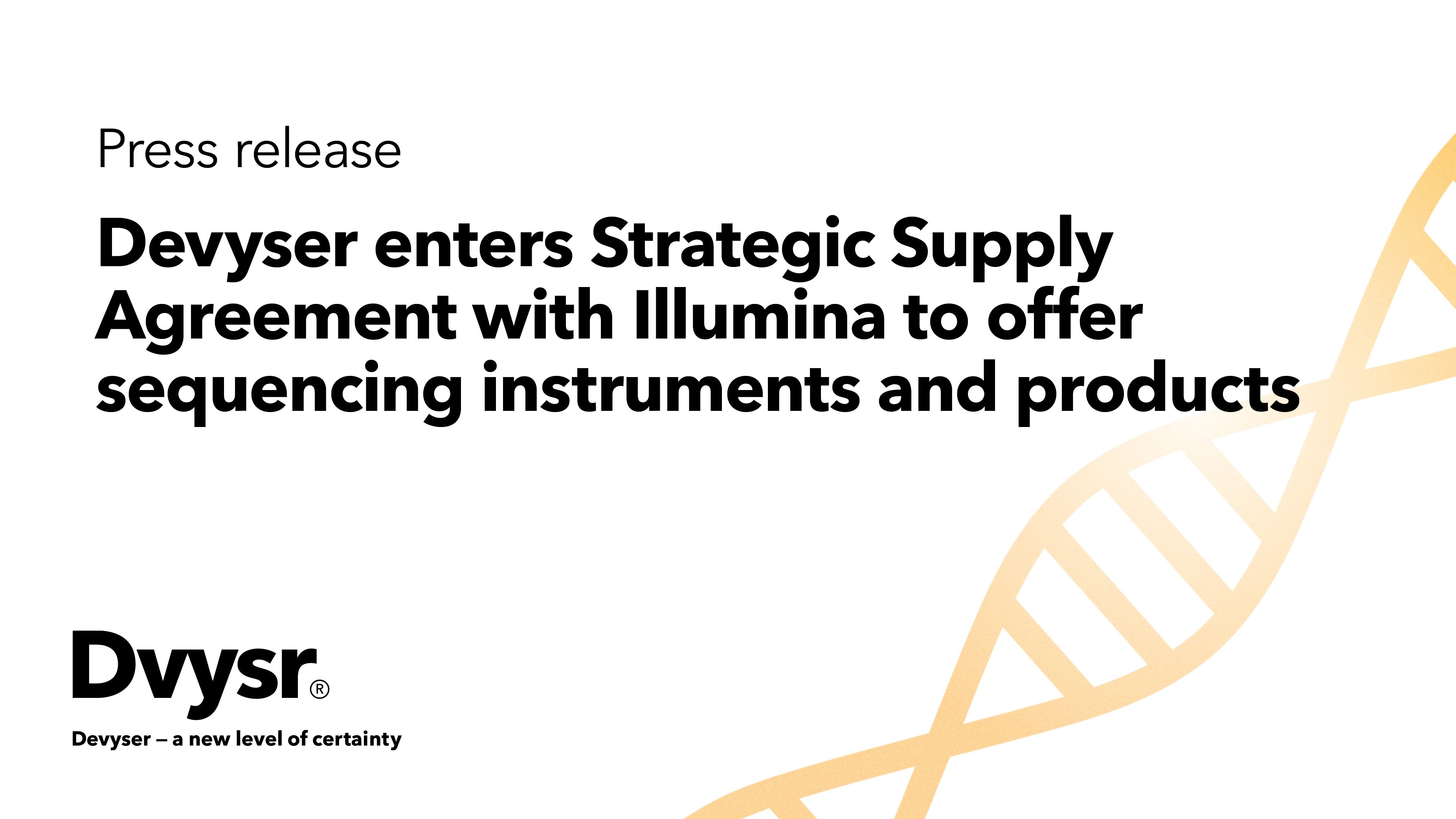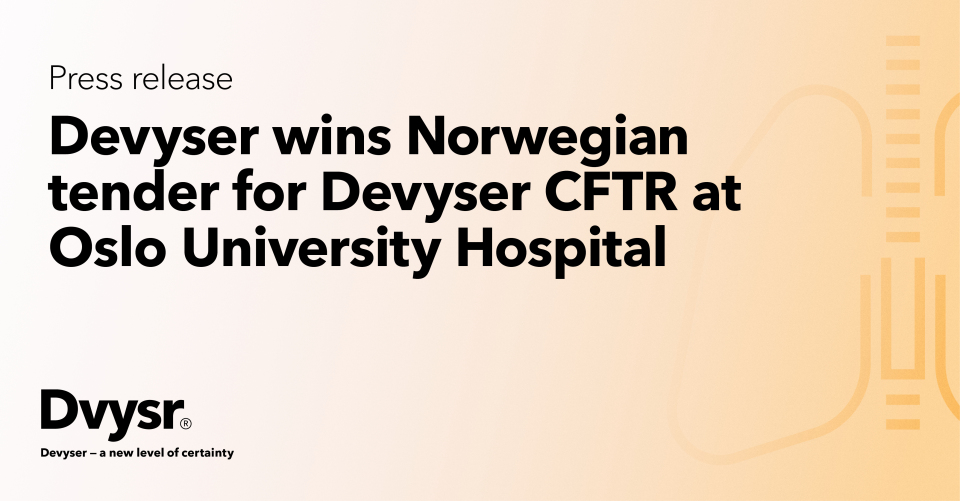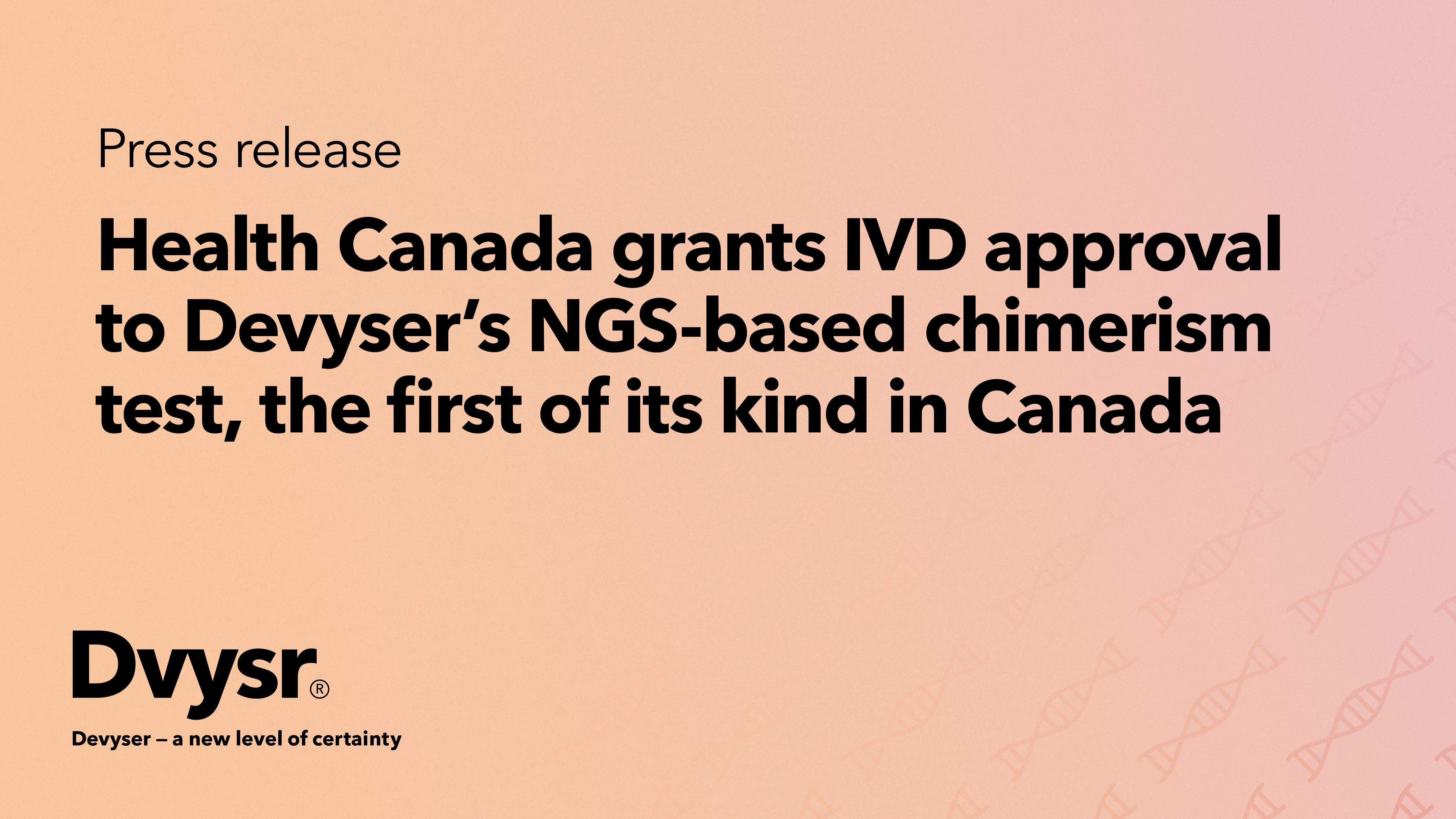Devyser enters Strategic Supply Agreement with Illumina to offer sequencing instruments and products
Devyser today announced that it entered a strategic agreement with Illumina, a global leader in DNA...
.png)
Thalassemias | July 9, 2024
Recently, we had the pleasure of hosting a webinar presentation on thalassemia genetic testing, led by Dr. Robert Akkers, molecular biologist at Result Laboratorium and Pathology department in Dordrecht, Netherlands. The presentation focused on applying next-generation sequencing (NGS) in diagnosing and understanding hemoglobinopathies, such as thalassemia. This comprehensive talk delved into the genetic aspects of these disorders, the challenges faced in traditional diagnostic methods, and how modern NGS technology can help overcome challenges faced by modern thalassemia testing needs.
Hemoglobinopathies overview
Hemoglobinopathies, such as thalassemia, are genetic disorders affecting the hemoglobin in red blood cells. These diseases burden healthcare systems significantly, particularly in regions with high prevalence rates. The global distribution of hemoglobinopathies closely resembles that of regions affected by malaria, as they confer protection against malaria. However, increased worldwide travel and shifting demographics have altered hemoglobinopathy distribution significantly.
Traditional diagnostic challenges
At Result Laboratorium, traditional methods for diagnosing hemoglobinopathies included a combination of Sanger sequencing and multiplex ligation-dependent probe amplification (MLPA). Although reliable, these techniques were labor-intensive and time-consuming, requiring multiple reactions and a significant amount of patient DNA. A single patient sample required 16 Sanger sequencing reactions and at least 8 MLPA reactions. In 2022, the laboratory processed 1,852 cases, underscoring the need for more efficient diagnostic solutions. Physicians also demanded genetic testing of both the alpha and beta globin genes simultaneously.
Introduction to Devyser Thalassemia
To address these challenges, Dr. Akker’s lab decided to deploy Devyser thalassemia in the laboratory. Devyser Thalassemia is a one-size-fits-all, single-tube solution that includes sequencing the alpha and beta globin genes in the same assay. The panel also offers several other advantages:
Direct detection of copy number variations (CNVs): The panel includes primers that detect large alpha and beta globin gene deletions.
Efficient NGS library preparation: The preparation is simplified, requiring only a small amount of genomic DNA (10ng) and involving a streamlined process with less than 45 minutes of hands-on time and a total assay time of around 5 hours. As with the previous methods, this process would have to be performed over several days.
End-to-end solution: Fully validated as a CE-IVD solution, it ensures compliance with clinical diagnostic standards and provides reliable results with reduced handling and error risks.
Integrated software: Amplicon Suite allows technicians and clinicians to analyze results without extensive bioinformatics training.
Case studies
During the webinar, Dr. Akkers presented several case studies within Amplicon Suite, demonstrating the various information included in the platform. In this screenshot, the software shows the variant analysis in a single sample. Two variants are shown, along with their location and variant allele frequency. Amplicon Suite also builds a database of laboratory results from all tested samples. The highlighted variant was seen in 30 samples sequenced in the laboratory so far in this readout.
Amplicon Suite also provides detailed information on the copy variants, with highlighted results showing where the software has recognized this deletion as an a3.7 deletion.
-1.png)
This case concluded that the patient had alpha-thalassemia due to the -α3.7/αα HBA2.95+2_96+6del with Devyser Thalassemia providing a clear and accurate diagnosis.
-1.png)
Conclusion:
This webinar highlighted the transformative impact of Devyser Thalassemia on genetic testing for thalassemia at Result Laboratorium. By integrating NGS technology, the panel offers a comprehensive, efficient, and accurate diagnostic solution that overcomes the challenges presented by traditional methods. The end-to-end CE-IVD validation further ensures that the panel meets clinical standards, making it a valuable tool for laboratories and healthcare providers.
Click here to access the webinar on-demand and hear the full accompanying Q&A session.

Devyser today announced that it entered a strategic agreement with Illumina, a global leader in DNA...
Read More

Devyser is proud to announce that the company has been awarded a tender by Oslo University Hospital...
Read More

Devyser, a leading provider of advanced genetic testing solutions, has been awarded a new tender in...
Read More

Devyser is proud to announce that One Lambda Devyser Chimerism and Advyser Chimerism have been...
Read More